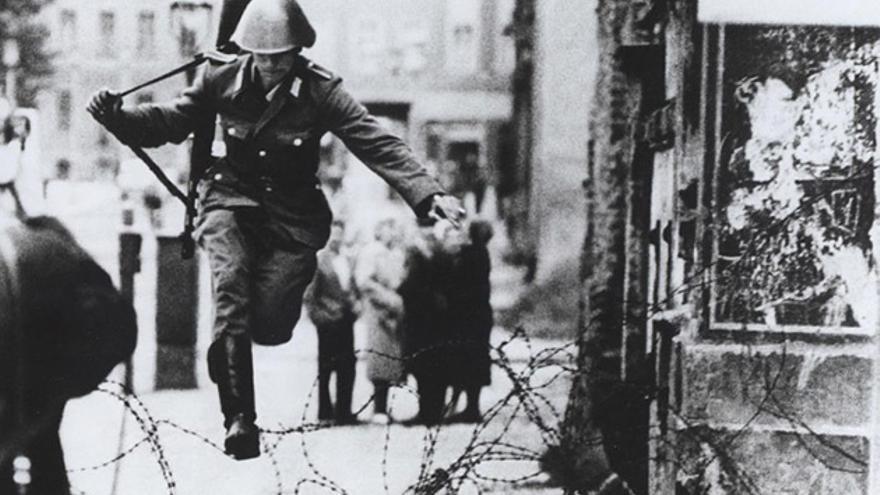
![]() 14ymedio, Carlos A. Montaner, Miami, 1 June 2019 — Are we closer to another war? I don’t know, but if it comes it will be much more dangerous because the atomic bomb has escaped its dusty magic lamp and is within reach of anyone who knows how to rub it and has the resources for it.
14ymedio, Carlos A. Montaner, Miami, 1 June 2019 — Are we closer to another war? I don’t know, but if it comes it will be much more dangerous because the atomic bomb has escaped its dusty magic lamp and is within reach of anyone who knows how to rub it and has the resources for it.
Let’s see.
It was about avoiding wars. Woodrow Wilson had failed in his attempt to have the First World War (1914-1918) put an end to all the great wars, but the White House would not let a new opportunity pass. It was in the spirit of Franklin D. Roosevelt and Harry Truman during the Second World War. The United States must spearhead the enormous effort of leading the “free world” to prevent the great conflagrations between powers. This, exactly, is what is in crisis.
Then it was about building an empire based on the ideology of liberal democracy (democratic institutions plus markets and private property) and not, as had been done until then, adding territories conquered by force to distant and distinct centers such as London, Moscow, Vienna, Istanbul, Madrid and Lisbon.
For these purposes, the Bretton Woods Conference was convened in 1944. It was vital to provide the planet with a financial system that would allow it to face post-Nazism. The Germans were practically defeated and there was no time to lose. After Roosevelt’s death, his vice president Harry Truman took the baton and created the defense mechanism to confront the Soviet imperial spasm. In the second half of the forties originated all the institutions that successfully fought the Cold War: the Marshall Plan, NATO, the CIA, the OAS, the TIAR and a short etcetera.
None of them counted on the stubborn persistence of nationalism. A nationalism that would resurface everywhere, including the United States, driven by migrations of people partly different from the mainstream that profiled the host nations.
The Communist Manifesto of Karl Marx and Friedrich Engels began with a very journalistic phrase: “A ghost crosses Europe. The ghost of communism.” They published it a month before the revolution of 1848, but then it went unnoticed. There was no relationship between the appearance of that text and the European revolts. If instead of the word “communism” the authors had written “nationalism” they might have guessed right.
Europeans continue to die or kill for their respective nations, but not for the European Union. The persistence of this phenomenon is very dangerous. I saw it very clearly after reading an intelligent observation by the Argentine Mariano Grondona. He said, more or less, because I quote from memory: “Many Argentines are willing to die for their country, but I do not know anyone who is willing to die for MERCOSUR.” The same thing happens in the European Union.
In the latest elections to the European Parliament it was quite obvious that the degradation of the purpose that animated this platform continues: to unite the European peoples based on democratic ideologies and not on nations, races or languages. In that great legislative body there exists, and still dominates, the center-right or European People’s Party. They are followed, by number of deputies, by the Socialists, the Liberals, the Greens and, finally, the Communists, who are not exactly democrats, because Marxism-Leninism is not democratic and makes fun of these “petty bourgeois trifles,” but in the short term they behave as such.
The British Nigel Farage, the Italian Matteo Salvini, the French Marine Le Pen, the Hungarian Viktor Orban, the Spanish Santiago Abascal, and the adviser of all, directly or in pectore, the American Steve Banon, who was very close to Donald Trump, are all delighted. The trend increased markedly in the European Parliament.
To me, on the other hand, it seems a symptom of the death throes of American hegemony and the gradual end of the world that emerged after the Second World War. We are entering a much more dangerous stage. Confronting the USSR everything was clearer, easier, probably better.
__________________
The 14ymedio team is committed to serious journalism that reflects the reality of deep Cuba. Thank you for joining us on this long road. We invite you to continue supporting us, but this time by becoming a member of 14ymedio. Together we can continue to transform journalism in Cuba.
